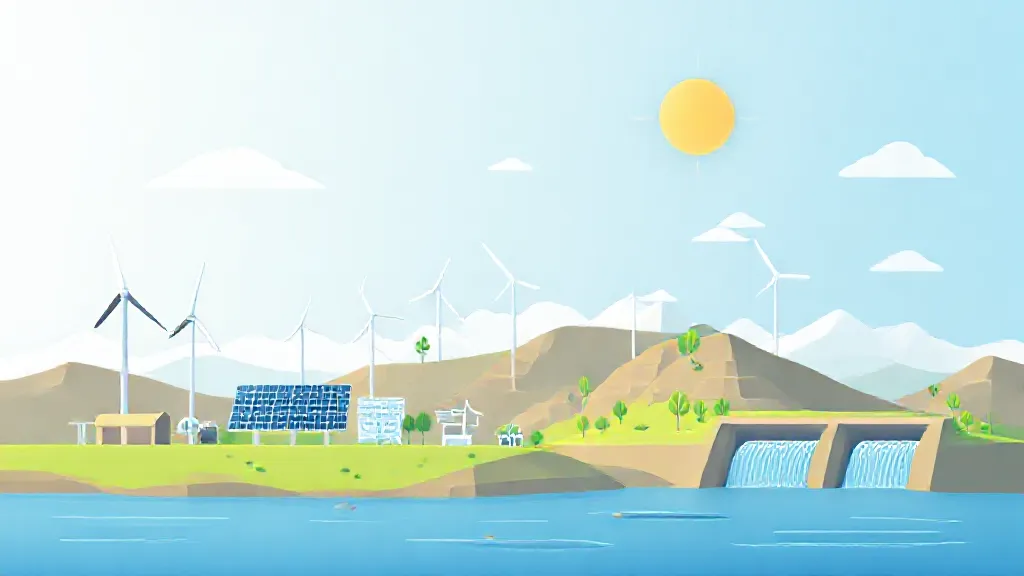The world is at a pivotal moment in its energy journey, facing the dual challenges of climate change and the depletion of fossil fuels. Renewable resources, such as solar, wind, hydroelectric, and geothermal energy, present viable solutions to these pressing issues. By harnessing these sustainable energy sources, we can not only reduce greenhouse gas emissions but also create a more resilient and equitable energy system for future generations.
The Rise of Renewable Energy Technologies
In recent years, advancements in renewable energy technologies have accelerated their adoption worldwide. Solar panels have become more efficient and affordable, while wind turbines are now capable of generating electricity at lower costs than traditional fossil fuels. For example, the cost of solar energy has dropped by over 80% in the last decade, making it a competitive option for electricity generation.
This technological progress has positioned renewables as a cornerstone of global energy strategies, with countries like Germany and Denmark leading the way in integrating these resources into their national grids.
Economic Benefits of Transitioning to Renewables
Transitioning to renewable energy not only addresses environmental concerns but also offers significant economic advantages. The renewable energy sector is a rapidly growing industry, creating millions of jobs worldwide.
According to the International Renewable Energy Agency (IRENA), the sector employed over 11 million people globally in 2018, with numbers expected to rise as investments in clean energy technologies continue to increase. Furthermore, renewable energy sources can stabilize energy prices, reducing dependency on volatile fossil fuel markets and enhancing energy security.
Decentralized Energy Production and Its Implications
One of the most transformative aspects of renewable energy is its potential for decentralized energy production.
Unlike traditional energy systems that rely on large, centralized power plants, renewables can be generated locally, empowering communities and individuals. This shift can lead to increased energy independence, especially in remote and underserved areas. For instance, microgrids powered by solar panels can provide electricity to rural communities that lack access to conventional power sources, fostering economic development and improving quality of life.
Environmental Impact and Climate Change Mitigation
The environmental benefits of renewable energy are profound. By replacing fossil fuels with clean energy sources, we can significantly reduce carbon emissions, a leading contributor to climate change. The Intergovernmental Panel on Climate Change (IPCC) emphasizes the urgent need to limit global warming to 1.
5 degrees Celsius, and transitioning to renewables is essential in achieving this goal. Additionally, renewable energy production has a lower ecological footprint compared to fossil fuels, preserving biodiversity and reducing air and water pollution.
Challenges in the Adoption of Renewable Resources
Despite the numerous benefits, the transition to renewable energy is not without challenges.
Issues such as intermittency, storage, and infrastructure development need to be addressed to ensure a reliable energy supply. For example, solar and wind energy generation can fluctuate based on weather conditions, necessitating advancements in energy storage technologies, such as batteries, to store excess energy for use during low production periods. Policymakers and industry stakeholders must collaborate to develop innovative solutions to these challenges.
The Role of Policy and Investment
Government policies and investments play a crucial role in accelerating the transition to renewable energy. Incentives such as tax credits, subsidies, and grants can stimulate investment in clean energy projects, while regulations that promote energy efficiency and emissions reductions can drive the adoption of renewables. Countries like China have made significant investments in renewable energy infrastructure, positioning themselves as global leaders in the sector.
International cooperation and funding are also essential to support developing nations in their renewable energy initiatives.
Public Awareness and Community Engagement
Public awareness and community engagement are vital for the successful implementation of renewable energy projects. Educating communities about the benefits of renewable resources can foster support for local initiatives and encourage participation in energy conservation efforts.
Grassroots movements advocating for sustainable practices have gained momentum, demonstrating that collective action can lead to meaningful change. Community solar projects, for instance, allow residents to invest in shared solar installations, promoting inclusivity and shared benefits.
A Vision for a Sustainable Energy Future
In conclusion, renewable resources hold the key to powering a sustainable future.
By embracing clean energy technologies, we can mitigate climate change, enhance energy security, and drive economic growth. The transition to renewables requires collaborative efforts from governments, businesses, and communities to overcome challenges and realize the full potential of these resources. As we move forward, it is imperative to prioritize sustainability in our energy choices, ensuring a healthier planet for generations to come.
